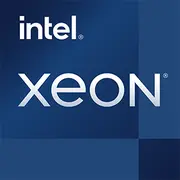Intel Xeon E5-2690 v2

The Intel Xeon E5-2690 v2 processor is a powerful and reliable CPU designed for server use. With a total of 10 cores and 20 threads, this processor offers impressive multitasking capabilities, making it well-suited for handling demanding workloads in a server environment. The base frequency of 3 GHz, which can be boosted up to 3.8 GHz with Max Turbo Frequency, ensures strong performance across a variety of tasks.
One standout feature of the Xeon E5-2690 v2 is its substantial 25MB L3 cache, which allows for rapid access to frequently used data, ultimately contributing to better overall system performance. With a TDP of 130W, this processor is energy-efficient, which can be a significant benefit for server operations.
In terms of benchmark performance, the Geekbench 6 scores of 599 for single-core and 1875 for multi-core testing are indicative of its impressive capabilities.
Overall, the Intel Xeon E5-2690 v2 processor is an excellent choice for server applications that require a balance of power, efficiency, and multitasking capabilities. Its reliable performance and robust feature set make it a solid option for businesses or organizations in need of a high-performance server CPU.
Basic
Label Name
Intel
Platform
Server
Launch Date
September 2013
Model Name
?
The Intel processor number is just one of several factors - along with processor brand, system configurations, and system-level benchmarks - to be considered when choosing the right processor for your computing needs.
Xeon E5-2690 v2
Code Name
Ivy Bridge-EP
Foundry
Intel
Generation
Xeon E5 (Ivy Bridge-EP)
CPU Specifications
Total Cores
?
Cores is a hardware term that describes the number of independent central processing units in a single computing component (die or chip).
10
Total Threads
?
Where applicable, Intel® Hyper-Threading Technology is only available on Performance-cores.
20
Performance-core Base Frequency
3 GHz
Performance-core Max Turbo Frequency
?
Maximum P-core turbo frequency derived from Intel® Turbo Boost Technology.
3.8 GHz
L1 Cache
64K per core
L2 Cache
256K per core
L3 Cache
25MB shared
Bus Frequency
100MHz
Multiplier
30.0
Unlocked Multiplier
No
CPU Socket
?
The socket is the component that provides the mechanical and electrical connections between the processor and motherboard.
Intel Socket 2011
Technology
?
Lithography refers to the semiconductor technology used to manufacture an integrated circuit, and is reported in nanometer (nm), indicative of the size of features built on the semiconductor.
22 nm
TDP
130 W
PCIe Version
?
PCI Express is a high-speed serial computer expansion bus standard used for connecting high-speed components, replacing older standards such as AGP, PCI, and PCI-X. It has gone through multiple revisions and improvements since its initial release. PCIe 1.0 was first introduced in 2002, and in order to meet the growing demand for higher bandwidth, subsequent versions have been released over time.
3
Transistor Count
1.4 billions
Memory Specifications
Memory Type
?
Intel® processors come in four different types: Single Channel, Dual Channel, Triple Channel, and Flex Mode. Maximum supported memory speed may be lower when populating multiple DIMMs per channel on products that support multiple memory channels.
DDR3
Memory Channels
?
The number of memory channels refers to the bandwidth operation for real world application.
4
ECC Memory Support
Yes
GPU Specifications
Integrated Graphics Model
?
An integrated GPU refers to the graphics core that is integrated into the CPU processor. Leveraging the processor's powerful computational capabilities and intelligent power efficiency management, it delivers outstanding graphics performance and a smooth application experience at a lower power consumption.
N/A
Benchmarks
Geekbench 6
Single Core
Score
599
Geekbench 6
Multi Core
Score
1875
Geekbench 5
Single Core
Score
552
Geekbench 5
Multi Core
Score
4841
Passmark CPU
Single Core
Score
1885
Passmark CPU
Multi Core
Score
13466
Blender
Score
104
Compared to Other CPU
Geekbench 6 Single Core
Geekbench 6 Multi Core
Geekbench 5 Single Core
Geekbench 5 Multi Core
Passmark CPU Single Core
Passmark CPU Multi Core
Blender
Share in social media
Or Link To Us
<a href="https://cputronic.com/cpu/intel-xeon-e5-2690-v2" target="_blank">Intel Xeon E5-2690 v2</a>